14 TV Relationships That Made Us Cringe
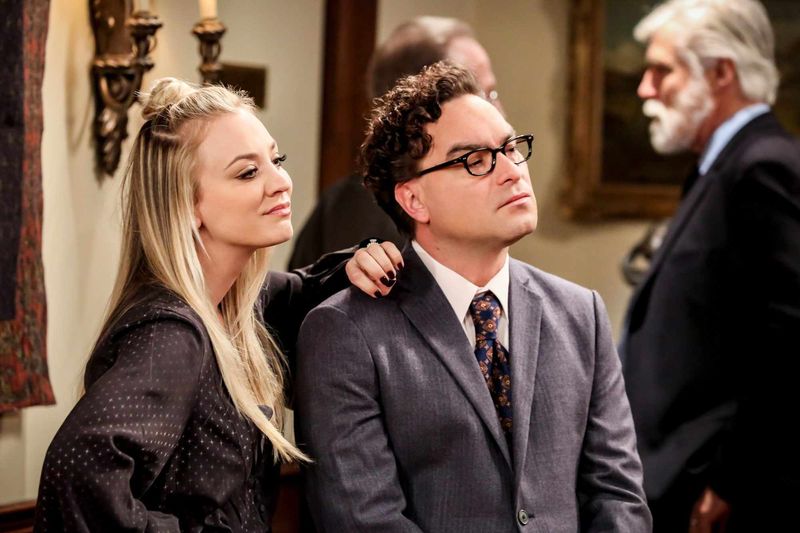
Television has given us some of the most memorable love stories, but not all romances are worth celebrating. Some couples make us want to look away from the screen because their relationships are filled with manipulation, awkwardness, or just plain toxicity. Whether it’s constant fighting, weird power struggles, or connections that feel totally forced, these TV pairings left viewers feeling uncomfortable rather than charmed.
Nate & Maddy (Euphoria)
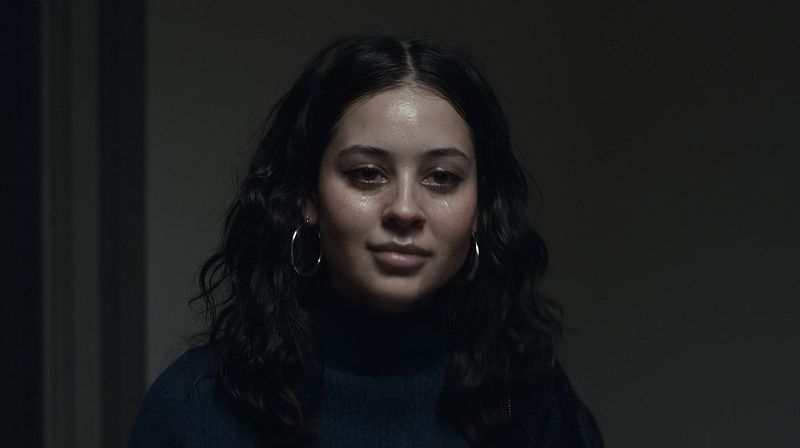
Watching Nate and Maddy together feels like witnessing a disaster unfold in slow motion. Their connection is built on emotional abuse, violent outbursts, and constant manipulation that makes every scene hard to stomach.
Maddy deserves so much better than someone who controls and hurts her repeatedly. Nate’s anger issues and toxic behavior create a relationship that’s frightening rather than romantic. The show doesn’t glamorize their dynamic, but it’s still deeply unsettling.
Viewers found themselves cringing through every interaction, hoping Maddy would finally escape. This relationship serves as a stark reminder of how damaging unhealthy partnerships can be, especially for young people still figuring out what love should look like.
Jaime & Cersei (Game of Thrones)
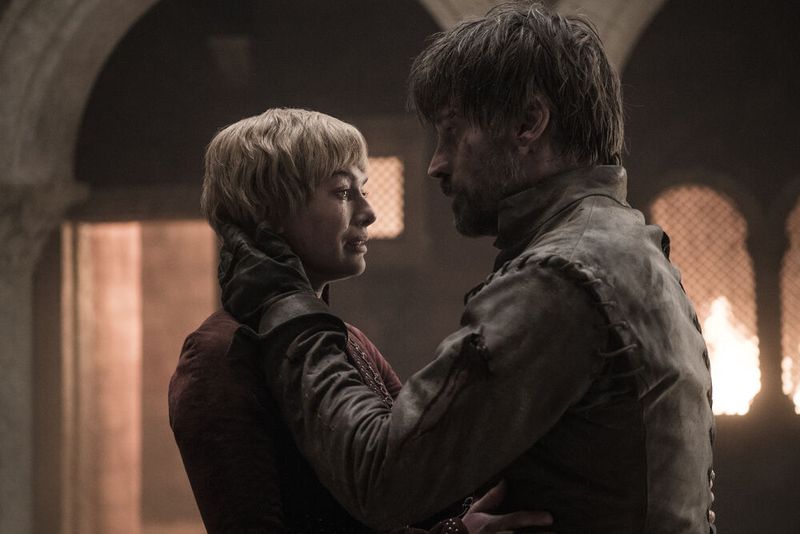
Few TV relationships have been as disturbing as the incestuous bond between these Lannister twins. Their secret affair isn’t just taboo—it triggers wars, destroys families, and leads to countless deaths throughout the series.
Jaime and Cersei’s relationship crosses every moral boundary imaginable. Their children are born from this forbidden union, creating political chaos across Westeros. The destruction they cause ripples through every season.
Even when Jaime shows signs of becoming a better person, his obsession with Cersei pulls him back into darkness. Viewers couldn’t help but feel uncomfortable whenever these two shared the screen, knowing the terrible consequences their love brings to everyone around them.
Alex & Piper (Orange Is the New Black)
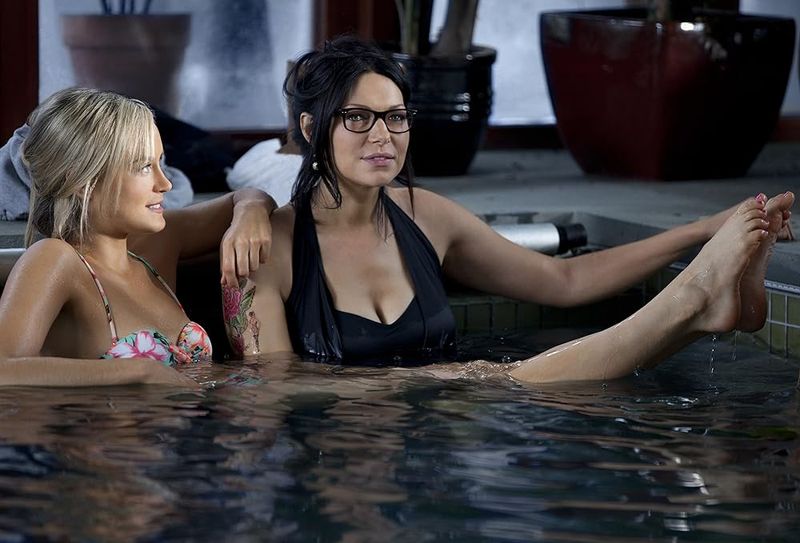
Alex and Piper’s relationship is built on a foundation of lies, betrayal, and cheating that never really gets resolved. Their history involves drug smuggling, betrayal to authorities, and constant emotional manipulation that makes their romance toxic rather than romantic.
Prison intensifies their dysfunctional dynamic instead of healing it. They cycle through breaking up and getting back together, with loyalty shifting depending on who offers the better deal at any moment. Trust seems impossible between them.
Viewers found themselves exhausted by their constant drama and wondering why these two couldn’t just stay apart. Their connection proves that passion and history aren’t enough when the relationship foundation is rotten from the start.
Tom & Shiv (Succession)
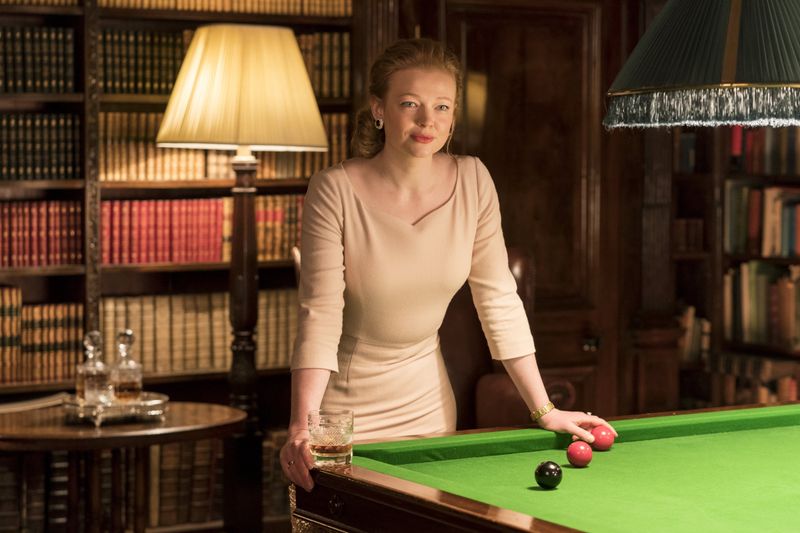
Marriage is supposed to be about love and partnership, but Tom and Shiv’s union is more like a business transaction gone wrong. Their relationship revolves around power plays, strategic manipulation, and emotional distance rather than genuine affection.
Shiv treats Tom with open contempt, cheating on him and belittling his career ambitions. Tom tolerates her abuse because he’s desperate for the wealth and status her family provides. Their wedding night conversation about open relationships sets the uncomfortable tone.
Every interaction between them feels calculated and cold, making viewers cringe at the transactional nature of their marriage. They represent what happens when ambition replaces love as the foundation of a relationship, creating something hollow and deeply awkward to witness.
Ross & Rachel (Friends)
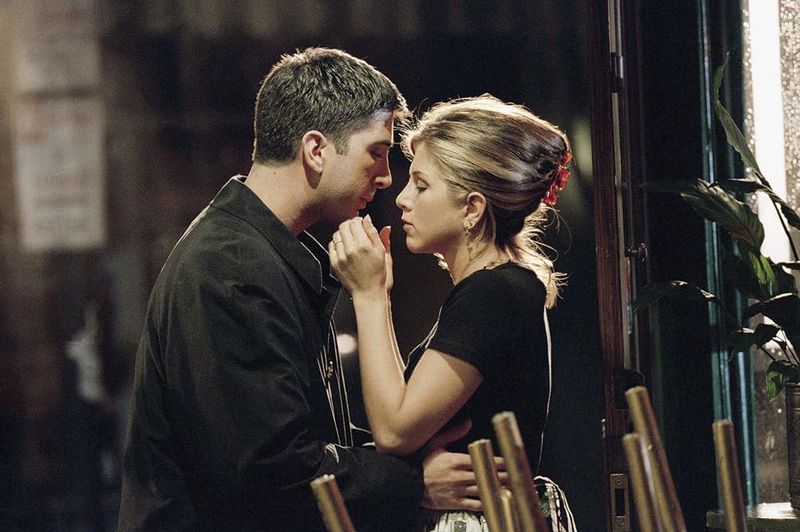
“We were on a break!” became a cultural catchphrase, but it also highlights the toxic communication patterns that plagued Ross and Rachel throughout the series. Their relationship cycles through jealousy, possessiveness, and constant miscommunication that modern viewers recognize as unhealthy.
Ross’s controlling behavior and intense jealousy created uncomfortable situations repeatedly. Rachel’s habit of running from commitment added to the dysfunction. Their on-again-off-again pattern stretched across ten seasons, exhausting fans who wanted them to either commit or move on.
While the show treats them as soulmates, rewatching reveals problematic dynamics that wouldn’t fly today. Their relationship represents how nostalgia can make us overlook red flags in fictional romances we once considered romantic.
Dan & Blair (Gossip Girl)
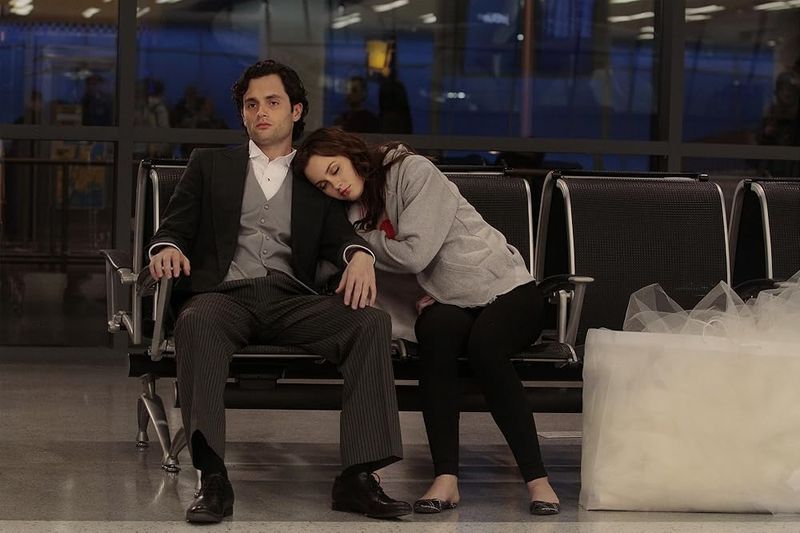
Nobody asked for Dan and Blair to become a couple, yet the writers forced it anyway, creating one of the most divisive pairings in teen drama history. Their friendship worked beautifully, but the romantic shift felt unnatural and betrayed both characters’ established personalities.
Blair belonged with Chuck, and Dan’s ultimate reveal as Gossip Girl retroactively made every moment with Blair creepy and manipulative. He’d been secretly documenting and exploiting her private life for years while pretending to care about her.
Fans felt betrayed watching this relationship unfold because it ignored the chemistry and history Blair shared with Chuck. The pairing seemed designed to create drama rather than serve the characters, resulting in uncomfortable scenes that pleased almost no one in the audience.
Fitz & Olivia (Scandal)
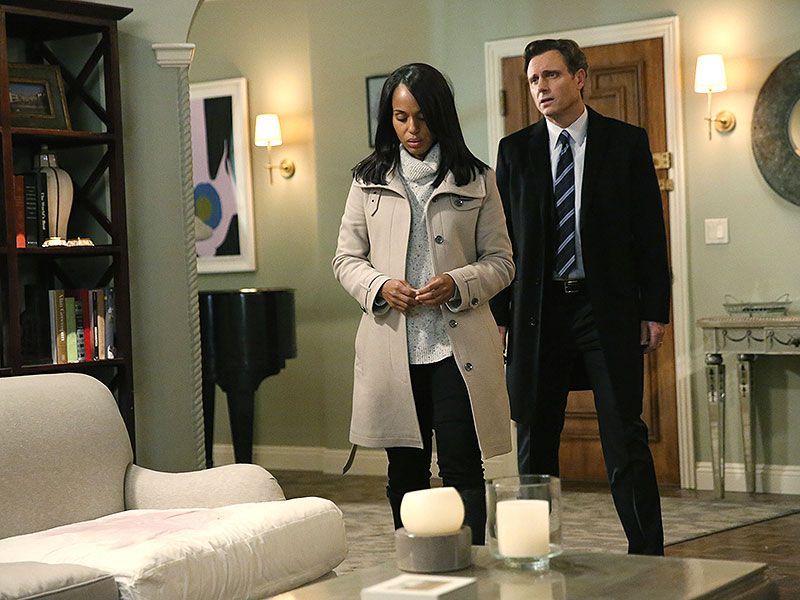
An affair between the President and his crisis manager sounds scandalous and exciting, but Fitz and Olivia’s relationship quickly became exhausting and problematic. Their connection involved constant lying, manipulation, and putting personal desires above national interests and other people’s lives.
Fitz’s possessiveness and entitled attitude toward Olivia grew increasingly uncomfortable. He expected her to drop everything for him while he remained married and used his presidential power to control situations. The power imbalance was staggering and troubling.
What started as a forbidden romance devolved into a toxic cycle of breaking up and reuniting that hurt everyone around them. Their relationship represented the worst kind of selfishness, making viewers cringe at the destruction they caused while claiming it was all for love.
Dawson & Joey (Dawson’s Creek)
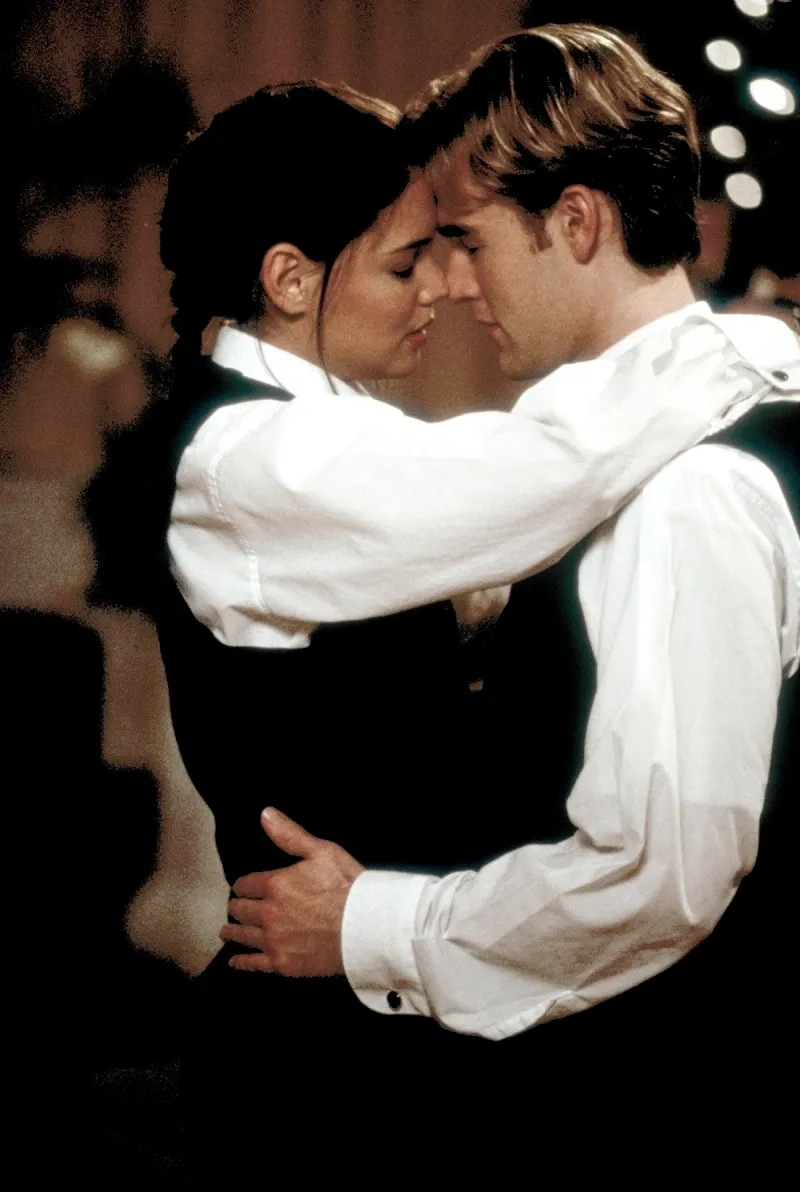
Dawson’s obsessive pining for Joey throughout the series made their relationship feel more like stalking than romance. His entitled attitude—expecting Joey to return his feelings just because he wanted her—created uncomfortable dynamics that haven’t aged well.
Joey deserved to make her own choices without Dawson guilt-tripping her constantly. Whenever she showed interest in someone else, Dawson acted betrayed and wounded, as if she owed him her romantic attention. His immaturity and self-centeredness dominated their every interaction.
The show wanted viewers to root for them as endgame, but many fans preferred Joey with Pacey, who actually respected her autonomy. Dawson and Joey’s relationship highlighted how friendship doesn’t automatically entitle someone to romance, no matter how long they’ve known each other.
Carrie & Big (Sex and the City)
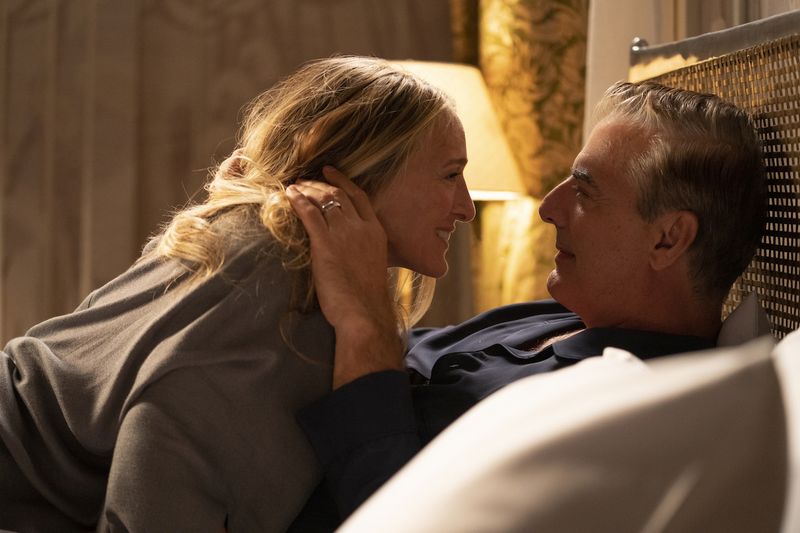
Big repeatedly treats Carrie terribly, yet she keeps running back to him in a cycle that glamorizes emotional unavailability. He stands her up at their wedding, refuses to commit for years, and generally puts his needs above hers throughout their entire relationship.
Carrie loses herself trying to be what Big wants, even moving to Paris and abandoning her life for a man who won’t prioritize her. The show presents this as romantic persistence, but it’s actually a masterclass in accepting breadcrumbs from someone who should offer a full meal.
Modern viewers recognize their dynamic as toxic rather than aspirational. Big represents the emotionally unavailable partner who keeps you hooked with occasional gestures while never fully committing, making their endgame feel less like victory and more like settling.
Spike & Buffy (Buffy the Vampire Slayer)
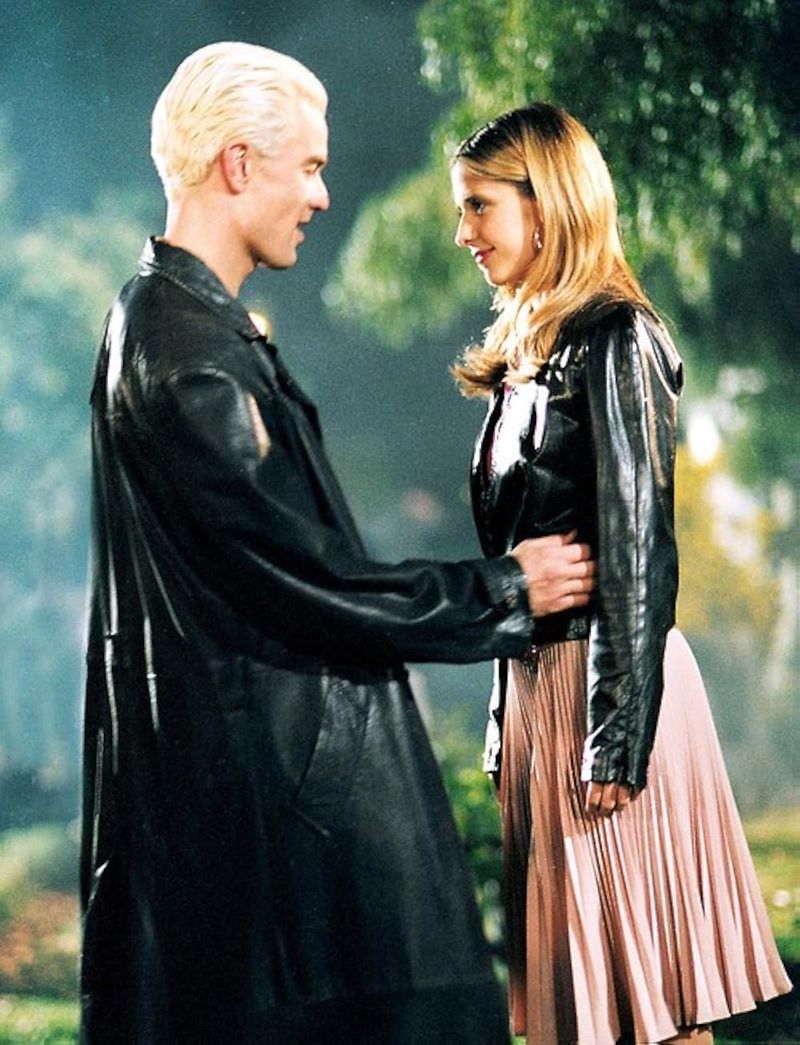
Buffy’s season six relationship with Spike represents her at her lowest point, using him for violent, self-destructive encounters she’s ashamed of. Their connection is built on her depression and self-hatred rather than genuine affection, making it painful to watch.
Spike’s obsession with Buffy crosses into disturbing territory multiple times, including an attempted assault that’s impossible to forget or forgive. Their physical relationship involves secrecy, shame, and Buffy treating Spike as less than human, which he accepts because of his desperate feelings.
While some fans found their dynamic compelling, the relationship’s toxic elements—violence, shame, power imbalance, and that unforgivable bathroom scene—made it deeply uncomfortable. This pairing showed how depression and trauma can lead to harmful relationship choices that hurt everyone involved.
Leonard & Penny (The Big Bang Theory)
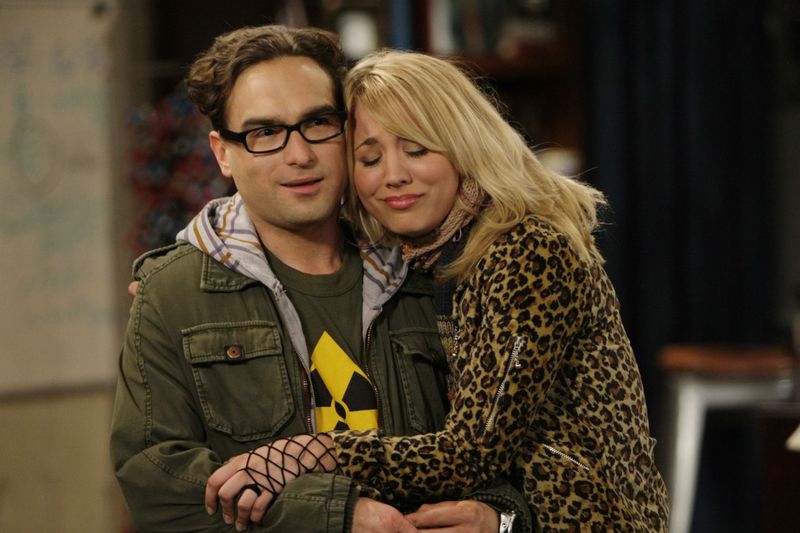
Leonard’s years-long obsessive pursuit of Penny often felt uncomfortable, with him pining desperately while she showed little initial interest. Their eventual relationship seemed built more on his persistence wearing her down than mutual attraction or compatibility.
The show constantly highlighted their intellectual differences in ways that made them seem fundamentally mismatched. Penny often appeared to settle for Leonard rather than genuinely fall for him, creating an imbalanced dynamic. His insecurity and her occasional cruelty didn’t help.
Their relationship cycles through breakups and trust issues, with Leonard’s jealousy and neediness creating constant problems. While the show treated them as endgame, many viewers felt they worked better as neighbors than as a couple, making their marriage feel more obligatory than earned.
Damon & Elena (The Vampire Diaries)

Damon spent the early seasons abusing, manipulating, and killing Elena’s friends while she repeatedly forgave him because of their “connection.” His behavior included compelling her friend, snapping her brother’s neck, and generally terrorizing everyone she loved.
The show tried to redeem Damon through his love for Elena, but his abusive patterns continued throughout their relationship. He made decisions for her, controlled situations through vampire powers, and expected forgiveness for truly terrible actions because of his tragic backstory.
Elena abandoning her relationship with Stefan—who actually respected her—for his abusive brother never sat right with many viewers. The pairing glamorized toxic behavior and suggested that bad boys who commit atrocities deserve love and forgiveness, creating an uncomfortable dynamic that overshadowed the show’s later seasons.
Schmidt & Cece (New Girl)
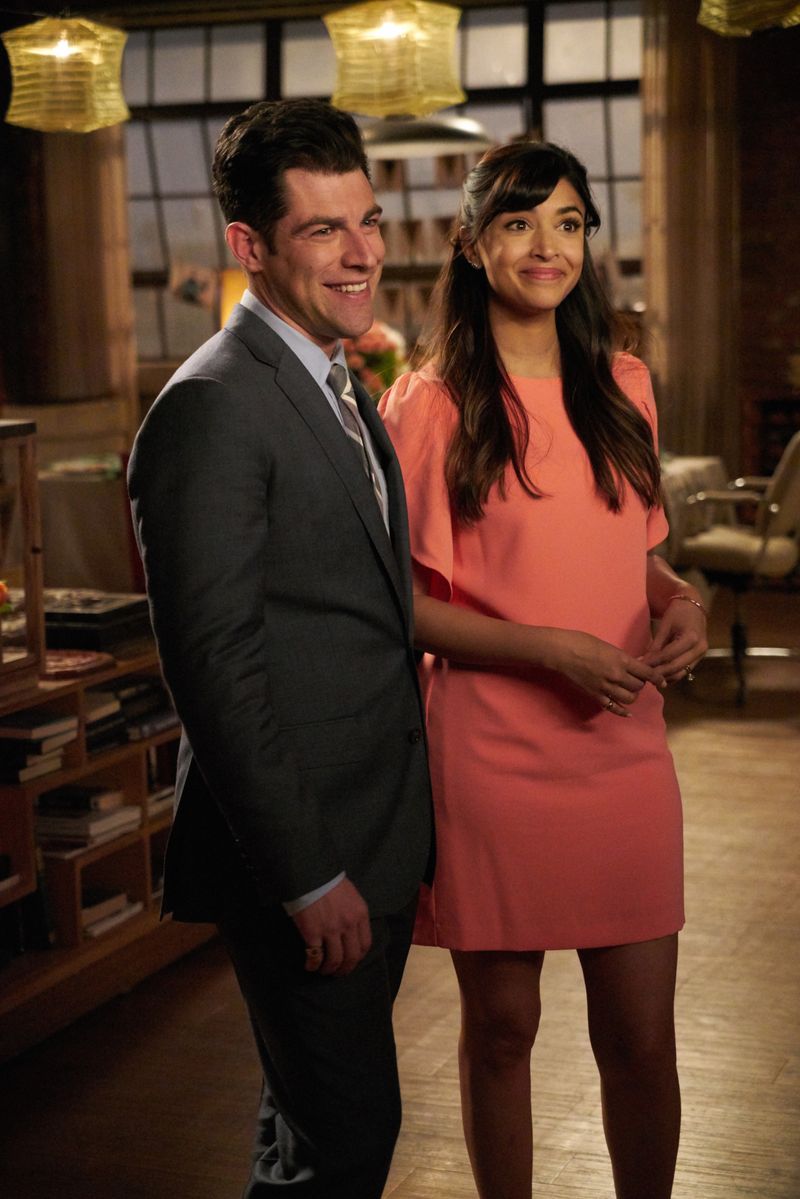
Schmidt’s initial treatment of Cece as just a physical conquest rather than a person with feelings created an uncomfortable foundation. His immaturity and self-centeredness clashed with her more grounded personality, making their early interactions cringey rather than cute.
When they finally got together, Schmidt’s inability to commit and his cheating destroyed the relationship. He dated both Cece and Elizabeth simultaneously, lying to both women and breaking Cece’s heart. His behavior showed he wasn’t ready for the relationship she deserved.
While they eventually married, the journey there involved so much pain and immaturity that many viewers struggled to root for them. Schmidt needed significant growth before deserving Cece, and watching him hurt her repeatedly made their early relationship difficult and uncomfortable to witness.
Lorelai & Christopher (Gilmore Girls)

Christopher represents Lorelai’s past and her pattern of settling for less than she deserves. Their relationship never worked because Christopher was unreliable, constantly disappointing Rory and Lorelai when they needed him most throughout the series.
Whenever Lorelai’s relationship with Luke hit problems, she’d run to Christopher instead of dealing with issues maturely. Christopher served as her backup plan, which was unfair to everyone involved. Their brief marriage felt like a mistake from the beginning, born from reaction rather than genuine love.
Fans cringed watching Lorelai marry Christopher when everyone knew she belonged with Luke. Christopher’s inability to be the partner and father he promised, combined with Lorelai using him as a Luke substitute, created an uncomfortable dynamic. Their relationship represented regression rather than growth for Lorelai’s character journey.

Comments
Loading…